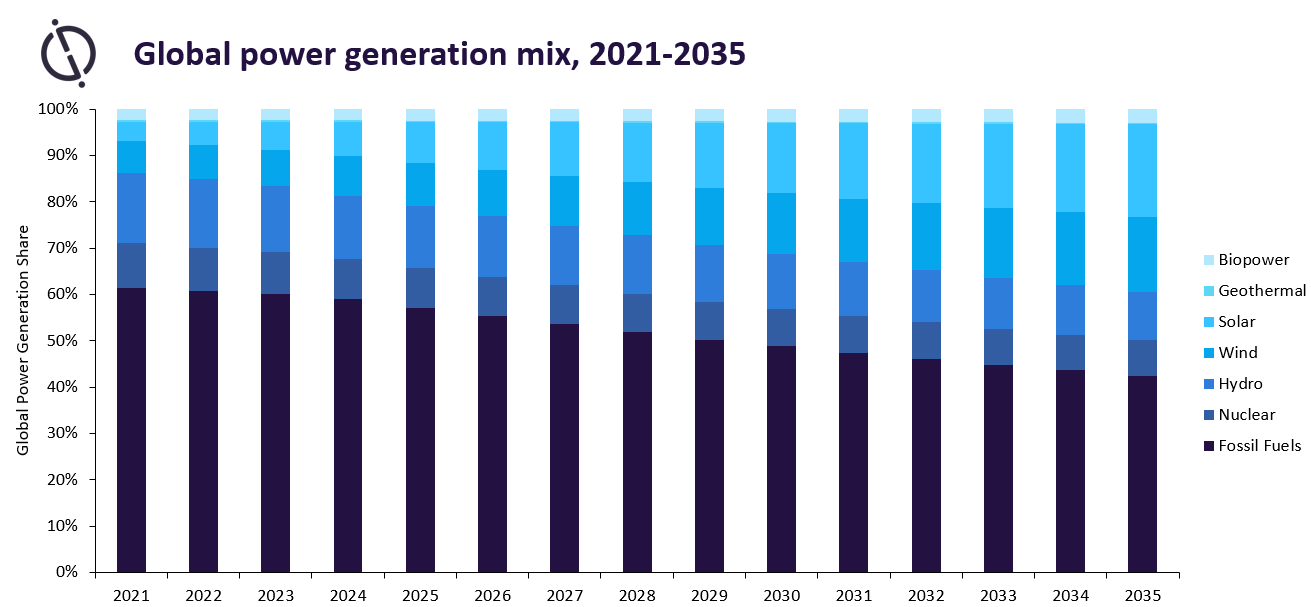Leading oil and gas players have set themselves decarbonisation targets for both the medium and long term, relying on existing and emerging technologies.
Efforts such as carbon capture predominantly work to mitigate emissions while hydrogen production, renewable power, and low-carbon fuels offer end-consumers alternatives to fossil fuels.
Energy storage, mostly in the form of batteries, is another transition avenue being explored by the oil and gas industry.
Several oil and gas industry players have adopted 2050 as a long-term goal for net-zero carbon emissions.
A lot of promises made by these players hinge on the successful implementation of their respective interim targets for 2030.
Companies are gradually shifting away from carbon-intensive fossil fuels towards renewable sources for power generation.
Oil and gas companies are pursuing solar and wind power projects as these provide the most growth potential in the future energy mix.
The cost of equipment in renewable power projects has consistently fallen in the last decade, owing to technological advancements and the growing scale of production.
In 2020, several oil and gas companies announced ambitious energy transition targets.
However, the hype around energy transition has somewhat subsided going into 2024.
This is evident from the scale-backs by industry leaders such as BP and Shell in some of their energy transition projects in the last two years.
Energy security has been a concern for most countries following the outbreak of the Russia-Ukraine conflict.
This has benefited oil and gas demand, at the cost of clean energy projects.
Heightened energy security fears amid the Ukraine conflict have brought back the focus on fossil fuels, which has led oil and gas companies to scale down their energy transition pursuit.
In conclusion, although the cutback on ambitious energy transition goals will likely continue in 2024, the switch towards low-carbon energy is expected to proceed, albeit slower.
Further discussion on energy transition-related developments for the oil and gas industry and an overview of the competitive positions held by oil and gas companies can be found in leading data and analytics company GlobalData’s new theme report Energy Transition in Oil and Gas.




